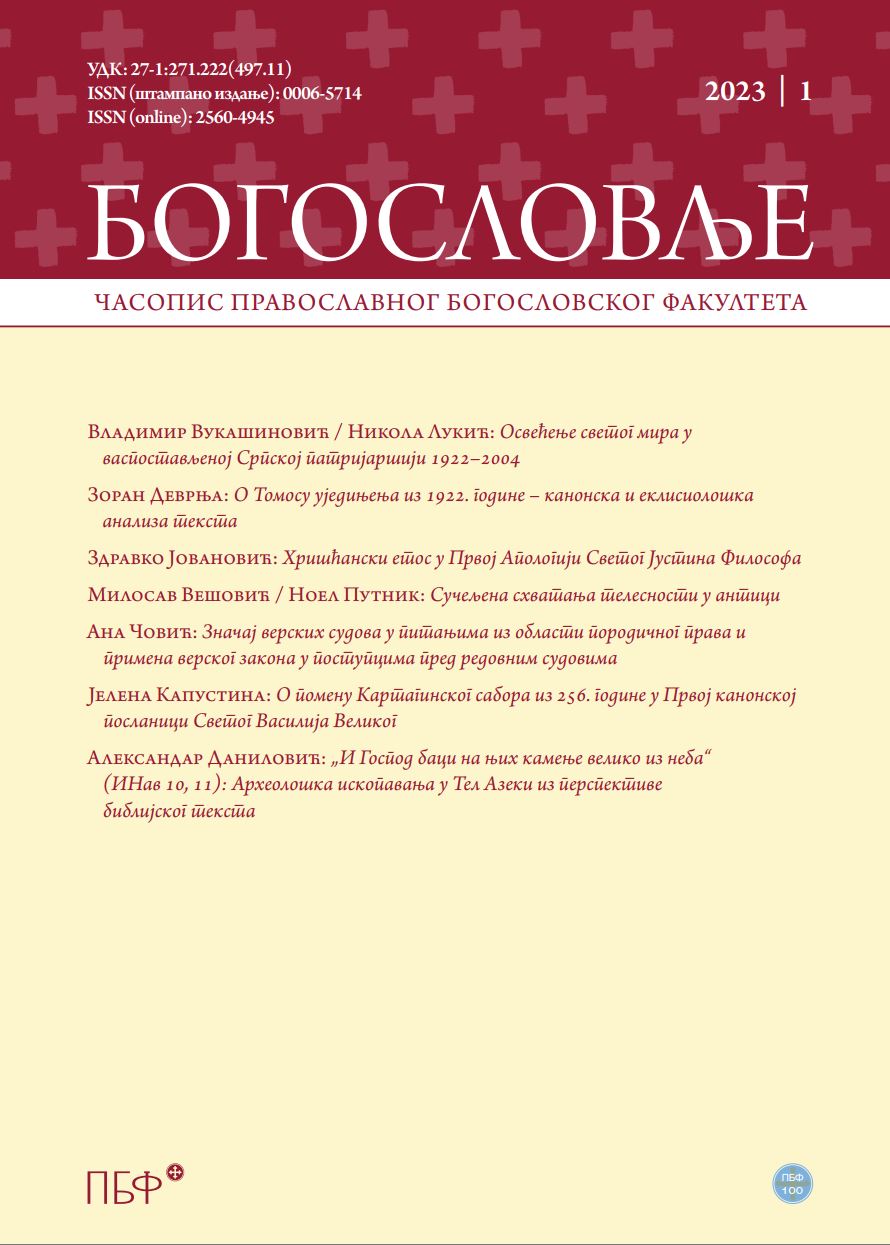Сучељена схватања телесности у антици
The Contested Notions of Body in Antiquity
Author(s): Milosav Vešović, Noel PutnikSubject(s): History, Philosophy, Language and Literature Studies, Theology and Religion
Published by: Православни богословски факултет Универзитета у Београду
Keywords: body; soul; anthropological monism; anthropological dualism; Christian paradigm; Platonic paradigm
Summary/Abstract: This paper presents a comaparative lexical-semantic analysis of the loci selected from the late antique Greek texts of Christian and non-Christian origin that advocate the dominant anthropological notions of the time. The analysis encompasses the two main anthropological paradigms, the Christian and the Platonic, which in many respects opposed each other, but also met and intersected throughout history, fostering the development of religious and philosophical thought. The Christian paradigm, marked by anthropological monism, is examined in this work in the key passages from the Old Testament and St. Paul’s Epistles, whereas the Platonic paradigm, marked by anthropological dualism, is analysed in the examples taken from Plato himself, Philo, Plutach and the Corpus Hermeticum. The main objective of the analysis is to examine the analogies and parallels between the two paradigms on the lexical, terminological and rhetorical plane. These analogies reveal a literary and intellectual dynamics that characterized the discourse on man’s nature in the era of early Christianity and late Antiquity. The analysis pays a particular attention to the tropes of „dressing“ and „undressing“ the body and the „nudity“ of the soul, as well as to the comparison of death with sleep.
Journal: БОГОСЛОВЉЕ
- Issue Year: 82/2023
- Issue No: 1
- Page Range: 49-63
- Page Count: 14
- Language: Serbian

